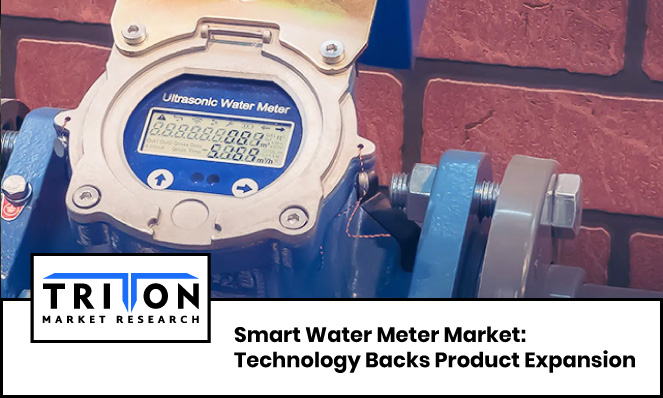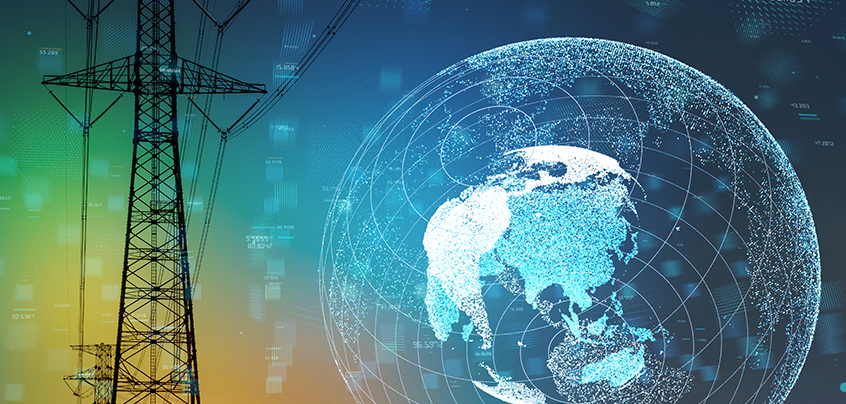



11, July 2022

The prevalence of dwindling water resources and the increasing wastewater disposal costs has skyrocketed the water scarcity crisis. A study revealed that more than 700 million people across 43 countries suffer from water scarcity, creating a demand for sustainable water supply. As a result, smart water technology is gaining immense popularity. Based on our study, the global smart water meter market is estimated to surge at a CAGR of 7.65% over the forecasting years 2022-2028.
A smart water meter is a mechanical or static device equipped with radio frequency-based communication modules such as M-Bus, NB-IoT, SigFox, etc., facilitating 1-way or 2-way communication between the device and operators. It boosts the utility’s ability to switch off valves remotely, identify leaks, and receive intelligent warnings for immediate action. Hence, these factors are contributing to the market’s growth. However, the high cost of installation and operational issues negatively impact the studied market.
The smart water meter market report highlights technology and end-user segmentation analysis. The technology category is divided into advanced metering infrastructure and automatic meter reading. The key end-users studied in the report are residential, commercial, and industrial.
The AMR technology is anticipated to grow with a CAGR of 3.37% over the forecast years. The high risks involved in traditional analog meters influence utilities to replace them with AMR meters. Besides, AMR meters enable accurate billing, reduce meter-reading costs, ensure data transparency, real-time billing information, etc., to end-users.
On the other hand, AMI is a more advanced technology than AMR owing to its two-way communication and real-time water data for the end-user and the utility. The segment is projected to surge with a CAGR of 9.48%. The technology helps utilities solve non-revenue water (NRW) problems.
Smart water meters such as AMI and AMR are ideal for non-residential consumers as they make it convenient to accurately forecast water bills, helping with operational planning. Moreover, industrial and commercial smart factories such as hospitals, schools, restaurants, etc., are surging at a CAGR of 8.88%, owing to the implementation of water meters to boost efficiency and reduce water consumption, which is further likely to propel the growth of the studied market.
Furthermore, the increasing number of residential buildings is expected to mitigate water consumption by 35%, advancing at a CAGR of 7.48%. Due to large water consumption by residential users, consumers are upgrading their places with smart water meters. As a result, the rapid increase in the adoption rate is revolutionizing the way smart water management systems interact with the residential sector.
The region is primarily emerging as a hub for narrowband-IoT-based smart water meters. The water utilities across the region are adopting LPWAN communication solutions, which drives the growth of this market. Besides, China is leading the region, owing to the deployment of large-scale projects based on the NB-IoT communication protocol.
The development of smart cities and stringent government norms in the United States and Canada has driven the regional market. Also, water utilities are implementing smart technology solutions to streamline their operations, creating opportunities for market players such as Neptune Technology Group Inc and Sensus USA Inc.
The top players in the market include Mueller Water Products Inc, Sensus USA Inc, Datamatic Inc, Neptune Technology Group Inc, and Master Meter. There is cut-throat competition among the competitors owing to large-scale investments and the increasing number of Chinese manufacturers. In this regard, the following product launches by the market players have influenced the market’s growth rate:
Countries across the world are substantially facing a shortage of water resources due to poor functioning of the water pipeline system, such as illegal tapping or leakages. Additionally, the growing water demand exceeds supply levels due to the rising urbanization, population, global warming, and geographic variation. As a result, governments are optimizing modern technological solutions such as AMI meters, sustainable water management systems, and initiatives to build smart cities, which are expected to accelerate the smart water meter market’s growth.
Image Source: bit.ly/3NZRoIX

Prevalent cases of terrorist attacks in today’s world is increasing the need for severe standards of security for public safety, and the global market for biometric technology scrupulously accommoda..
Prevalent cases of terrorist attacks in today’s world is increasing the need for..